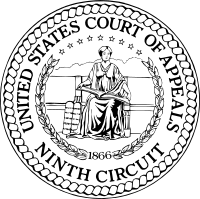Navajo Nation v. United States Forest Service
| Navajo Nation v. United States Forest Service | |
|---|---|
 | |
| Court | United States Court of Appeals for the Ninth Circuit |
| Full case name | Navajo Nation, et al v. United States Forest Service, et al |
| Argued | September 14, 2006 |
| Reargued | December 11, 2007 |
| Decided | March 12, 2007 |
| Citation(s) | 479 F.3d 1024 |
| Case history | |
| Prior action(s) | 408 F. Supp. 2d 866 (D. Ariz. 2006) |
| Subsequent action(s) | Reversed en banc, August 8, 2008, 535 F.3d 1058 |
| Court membership | |
| Judge(s) sitting | Alex Kozinski, Harry Pregerson, Diarmuid F. O'Scannlain, Pamela Ann Rymer, Andrew J. Kleinfeld, Barry G. Silverman, William A. Fletcher, Raymond C. Fisher, Richard R. Clifton, Carlos T. Bea, Sandra S. Ikuta |
| Case opinions | |
| Majority | Bea, joined by Kozinski, O'Scannlain, Rymer, Kleinfeld, Silverman, Clifton, Ikuta |
| Dissent | Fletcher, joined by Pregerson, Fisher |
| Laws applied | |
| Religious Freedom Restoration Act | |
Navajo Nation v. United States Forest Service, 479 F.3d 1024 (9th Cir. 2007)[1], reversed after rehearing en banc, 535 F.3d 1058 (9th Cir. 2008)[2] was brought to the United States Court of Appeals for the Ninth Circuit in 2007. It was a case that was brought about by previous cases dealing with the expansion of the Snowbowl ski resort on the government-owned sacred lands of the Navajo peoples located in northern Arizona. In Navajo Nation v. U.S. Forest Service, the conflict furthered by the Federal governments use of artificial snow containing treated sewage on the sacred San Francisco Peaks, an area that is owned by the federal government. The Navajo people, along with twelve other nations, made the appeal, citing that the use of sewage water is violating the Religious Freedom Restoration Act.
Background
The proposal that the U.S. government approved consists of pumping 1.5 million gallons of sewage effluent per day from the nearby city of Flagstaff, Arizona to the San Francisco Peaks in order to manufacture artificial snow for the Snowbowl. The purpose of the plan is to improve the economic viability of the ski resort, which has suffered diminished profits from decreased annual snowfall. The tribes of the Navajo Nation initiated a suit against the U.S. Forest Service under the Religious Freedom Restoration Act.[3]
Court decision
On March 12, 2007, a three-judge panel of the Ninth Circuit Court of Appeals had ruled favorably for the tribes. It held that the proposed use of treated sewage water would impose a "substantial burden" on the exercise of religion for the native nations.[1] This ruling was reversed on August 8, 2008, when an en banc panel of the Ninth Circuit ruled that the use of recycled sewage water was not a "substantial burden" on the religious freedom of American Indians. "Substantial burden," the court argued, only occurred if an individual was forced to choose between following the tenets of his or her religious beliefs or receiving government benefit, or coerced to act contrary to his or her religious beliefs by the threat of civil or criminal sanctions.[2] The Native peoples petitioned for certiorari in June 2009, but the High Court denied the tribes' petition, upholding the Ninth Circuit Court's decision.[4]
References
- 1 2 Navajo Nation v. United States Forest Service, 479 F.3d 1024 (9th Cir. 2007).
- 1 2 Navajo Nation v. United States Forest Service, 535 F.3d 1058 (9th Cir. 2008).
- ↑ Edwards, Joshua. "Yellow Snow on Sacred Sites: A Failed Application Of The Religious Freedom Restoration Act". University of Oklahoma College of Law. JSTOR 25684266. Missing or empty
|url=(help) - ↑ Wilkins, Stark, David, Heidi (2011). American Indian Politics and the American Political System. Lanham, Maryland: Rowman &Littlefield Publishers INC. pp. xxxviii–xxxix.
External links
- Text of Navajo Nation v. United States Forest Service, 479 F.3d 1024 (9th Cir. 2007) is available from: CourtListener Justia OpenJurist Google Scholar
- Text of Navajo Nation v. United States Forest Service, 535 F.3d 1058 (9th Cir. 2008) is available from: CourtListener Findlaw Google Scholar
- Royster, Judith; Blumm, Michael. "Native American Natural Resources Law" (PDF). Carolina Academic Press. Retrieved 2017-10-07.
- Amar, Vikram David; Brownstein, Alan (February 17, 2009). "The Navajo Nation Case, Which the Supreme Court May Soon Review, and How It Reveals the Complex Balance Envisioned by the Religious Freedom Restoration Act". FindLaw. Thomson Reuters. Retrieved 2017-10-07.